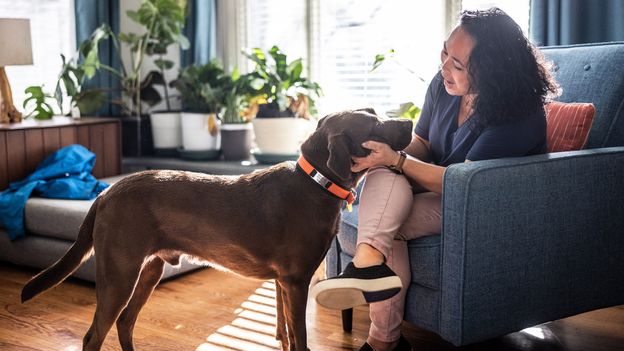So far, I’ve only looked after animals and homes that are a few hours from where I live so that I wouldn’t have to pay for airfare. And most arrangements are domestic (72%), Laws says. But plenty of travellers use home- and pet-sitting to travel far and wide.
Sharyn Nilsen, who is from Australia and is based for much of the year in Vietnam, travels full-time with her husband, Tim, and has been for the past 18 years. She says house- and pet-sitting “enhances our adventures and keeps us on a budget”.
The Nilsens have explored more than 140 countries and territories thanks to this unique lodging approach. “Last year, we sat in Mumbai, London, Paris, Brussels, Zurich, Lausanne, Oxford, Rye and Ho Chi Minh City,” Sharyn says. “I added it up the other day: In the past seven years, we’ve sat for 770 nights. And remember, there were two years out because of Covid.”
The lifestyle works so well for the Nilsens that they no longer have a place of their own in Vietnam. Instead, they rent a fully furnished home when they go back to visit. House-sitting, Nilsen says, “is so sustainable” that it just makes sense to keep doing it. The Nilsens now help others embark on the same journey with their website, fittingly called Catch Our Travel Bug, which is filled with tips such as how to make a stand-out house-sitting profile.
More like this:
• The 89-year-old woman who is still travelling the world solo
• Five countries that are safer for women
• In the steps of history’s forgotten female explorers
“I’ve helped loads of newbies venture into this amazing lifestyle,” Sharyn says. Still, she warns that home and pet-sitting isn’t just a free vacation – it comes with real responsibilities that vary from sit to sit. That can mean walking dogs, feeding chickens, or even caring for horses or reptiles. Tasks such as administering pet medications are part of many stays, too. If travellers aren’t prepared for those responsibilities, she recommends they don’t travel this way. And there are other potential drawbacks to the pet-sit requirement in general: Travellers who prefer long nights out on the town or day trips away from a home base may feel that being tied to pet duties isn’t worth it.
Still, for Nilsen, there is no other way to travel. It’s not about taking a quick holiday (or many). It’s a way of life that’s about exploring and immersing herself in the culture of the locations she finds herself in – slow travel at its finest. She imagines she and her husband will reach 160 countries, “maybe 170”, she says, within the next five years.
Laws also believes that travelling this way is something special. She says it fosters connections that “are authentic and unique” – and not just with the animals, but with the people who are sharing their spaces and their pets. It’s no small ask, but it’s a two-way street. And, as far as house-sitting goes, trust seems to beget trust.
—
If you liked this story, sign up for The Essential List newsletter – a handpicked selection of features, videos and can’t-miss news delivered to your inbox every Friday.
Join more than three million BBC Travel fans by liking us on Facebook, or follow us on Twitter and Instagram.










